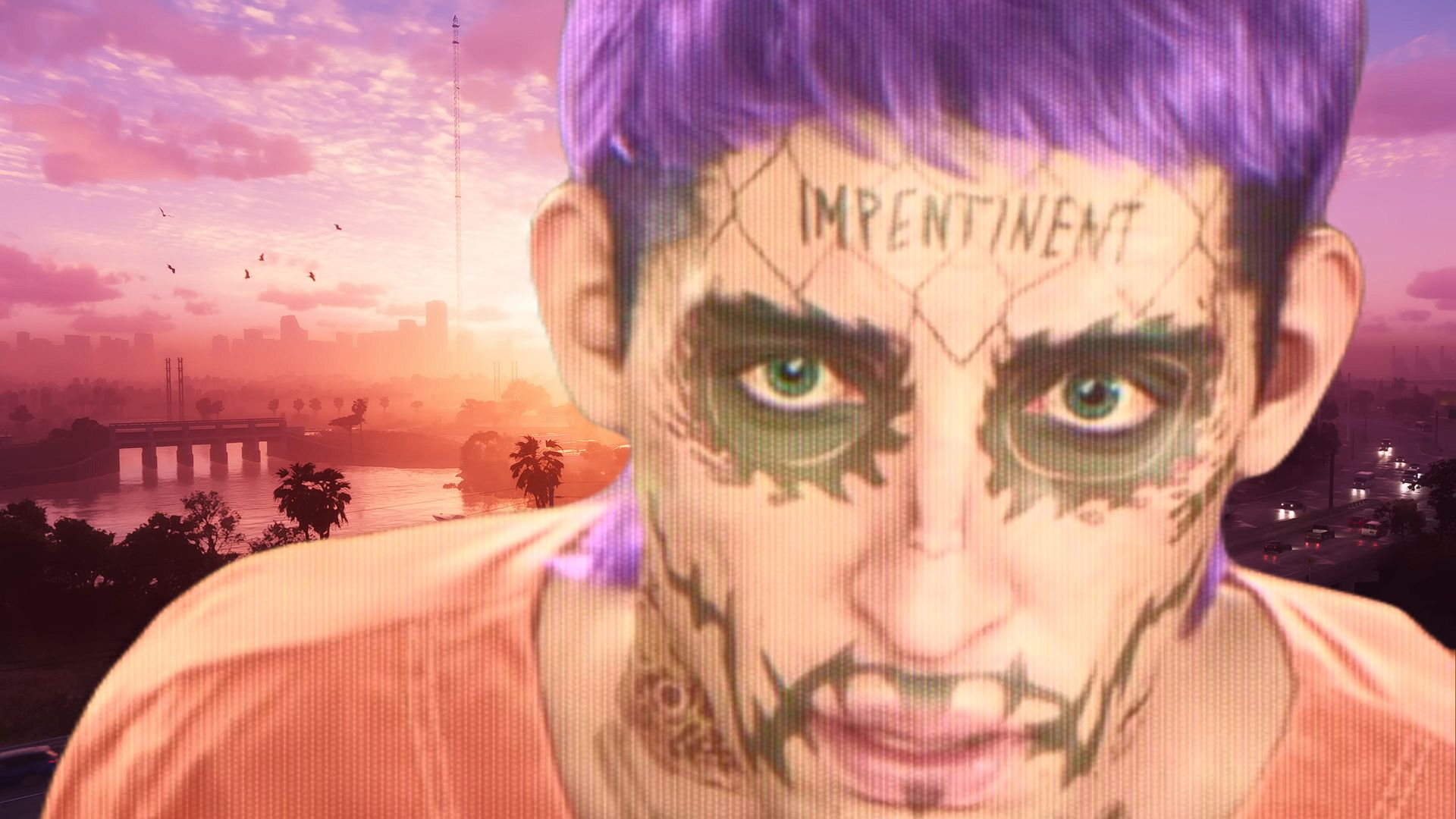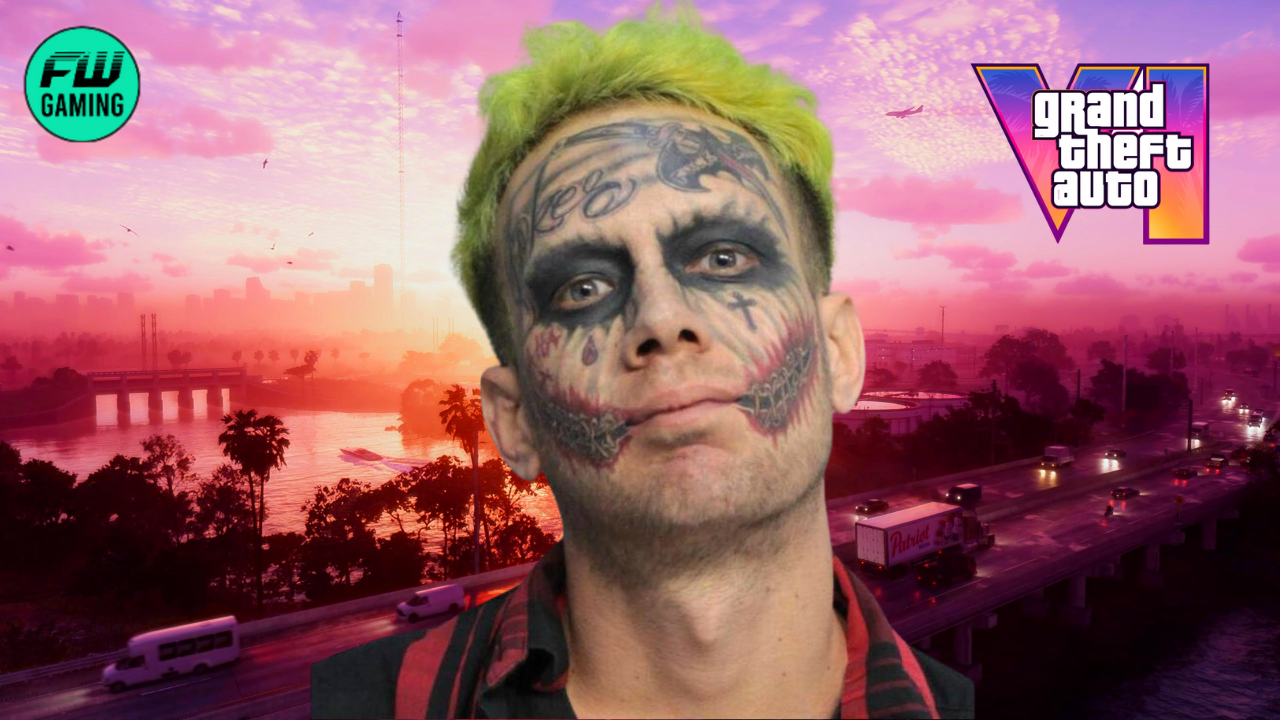Is it possible for a real-life persona to inadvertently become a character in a global phenomenon like Grand Theft Auto VI? The saga of "Florida Joker" Lawrence Patrick Sullivan, a man whose likeness is alleged to be mirrored in the upcoming Rockstar Games title, suggests a resounding "yes," and the story is far from over.
The story of Lawrence Patrick Sullivan, better known by his internet moniker, "Florida Joker," is a modern-day cautionary tale of viral fame, online feuds, and the blurred lines between reality and entertainment. Sullivan, a South Florida resident, first gained notoriety in 2017 when his mugshot, featuring distinctive facial tattoos and vibrant green hair, went viral. The image, bearing a striking resemblance to the Batman villain, the Joker, immediately captured the attention of the online world, solidifying his nickname and launching him into the realm of internet celebrity.
Sullivan, a tattoo model by trade, has actively cultivated his image, leaning into the persona that brought him fame. He has embraced the Joker's aesthetic, adopting the green hair and facial markings as his signature look. This self-fashioned association, however, has now put him at the center of a legal and public relations battle with Rockstar Games, the developer behind the immensely popular Grand Theft Auto franchise. The crux of the issue: Sullivan believes the developers have used his likeness without permission in the trailer for the upcoming GTA VI.
- Exploring Ab Quintanillas Net Worth The Musical Genius Behind Selenas Legacy
- Brilliant Pad Net Worth Everything You Need To Know
The controversy ignited with the release of the GTA VI trailer. Fans and observers immediately noted the presence of a character bearing a strong resemblance to Sullivan. The character's appearance, mannerisms, and even the situations they are depicted in, bore uncanny similarities to Sullivan's online persona. This has led Sullivan to accuse Rockstar Games of using his likeness without consent, a claim that has escalated into a series of public demands and legal posturing.
The situation, as it currently stands, is a complex mix of copyright infringement, public image rights, and the often-volatile nature of online interactions. The following table provides a detailed look at the key elements of the "Florida Joker" case:
| Category | Details |
|---|---|
| Real Name | Lawrence Patrick Sullivan |
| Known As | Florida Joker |
| Occupation | Tattoo Model, Internet Personality |
| Notoriety | Viral Mugshot, Resemblance to the Joker, GTA VI Controversy |
| Key Feature | Green Hair, Extensive Facial Tattoos |
| Current Status | Seeking compensation from Rockstar Games and to voice the character in GTA VI. |
| Controversies | Various arrests, feuds, and accusations of using others' likeness |
| Legal Position | Claims Rockstar Games used his likeness, is demanding compensation. |
| Reference | Official Instagram Account |
Initially, Sullivan threatened a $10 million lawsuit against Rockstar Games, demanding compensation for the alleged unauthorized use of his likeness. However, his stance has since evolved. Now, he claims he's no longer suing the game developers but is seeking to voice the character in the game, asserting that his persona is directly responsible for boosting the game's popularity. He even challenged Rockstar to find a "better Florida Joker" for the role.
- Morgan Spurlock Net Worth 2023 A Deep Dive Into The Wealth Of The Documentary Filmmaker
- Exploring Erik Estradas Net Worth How Much Is Erik Estrada Worth
This shift in strategy highlights the complex dynamics at play. Sullivan seems to be leveraging the attention generated by the controversy to secure a role in the very game he accused of infringing on his rights. It is a gamble, one that underscores the modern reality of how individuals can attempt to monetize their online fame, even through controversial means. The saga also reflects how internet fame can lead to unexpected consequences, whether they are negative, like the potential legal battles, or positive, like the opportunity to land a role in a highly anticipated video game.
The case raises several critical questions about the use of real-life personas in video games and the legal frameworks that govern such uses. Copyright law typically protects original works of authorship, including visual works and musical compositions. However, the use of a person's likeness falls under the domain of "right of publicity," a legal concept that protects an individual's right to control the commercial use of their name, image, and other aspects of their identity. This right varies by jurisdiction, and the specific legal arguments in the Sullivan case will depend heavily on the laws of the relevant jurisdiction, where the game will be marketed.
Rockstar Games, and its parent company Take-Two Interactive, are seasoned veterans in the world of entertainment litigation, and have a history of defending their intellectual property rights. They have not officially commented on Sullivan's claims, which is their standard course of action. Should Sullivan pursue legal action, the case would likely hinge on whether the character in the GTA VI trailer is considered a direct likeness or a parody, a crucial distinction under the law.
Adding to the intrigue, the trailer, which features a satirical take on modern American culture, includes various references to real-life individuals and internet phenomena. This reflects the game's tradition of incorporating realistic elements into its fictional narrative. This has opened the door for potential claims from others who feel they've been portrayed in an unflattering or unauthorized manner within the game. The possibility of further legal challenges adds complexity to the situation and underscores the potential repercussions of blurring the lines between fiction and reality in entertainment.
The "Florida Joker" case is more than just a legal dispute; it is a cultural reflection of how fame, identity, and digital spaces are evolving in the modern era. It exemplifies the way in which people strive to capitalize on their online presence and negotiate the complex landscape of digital rights and intellectual property. The attention and the controversy surrounding the case also show how cultural and viral moments can quickly evolve into legal battles and public relations campaigns, as digital platforms and social media channels accelerate the process of public communication.
In addition to the core controversy, the "Florida Joker" story features ancillary elements, such as the incident where a deputy pulled over a car with a "Florida Joker" license plate sticker. The authorities stated that the sticker violated Florida statute. Such incidents showcase how Sullivan's notoriety, as well as his online persona, are extending beyond the digital realm, influencing real-world interactions and public perceptions.
While the legal ramifications are still unfolding, Sullivan's case has already provided valuable food for thought and a lot of discussion. The story presents the challenges of navigating the terrain of intellectual property rights in the modern entertainment industry, where real-world individuals can, intentionally or unintentionally, become integrated into fictional narratives. It emphasizes the significance of understanding the rights of publicity, the ways of protecting an individual's identity, and the risks linked to blurring the line between fact and fiction in the age of social media and streaming platforms.
The "Florida Joker" saga also brings to light the power of social media in shaping public opinion. Sullivan is actively utilizing platforms like TikTok to communicate his message and gather support, making his case directly to his audience. These actions serve to highlight the significance of controlling one's narrative in the digital sphere, enabling individuals to attempt to influence public perception and create opportunities, even in the middle of legal disputes.
This case is a reminder that the digital world has opened new ways to get involved, and that, in the age of social media, anyone can become a source of material for the entertainment industry. It is a clear example of the constant friction between protecting intellectual property rights, preserving individual identities, and the creative freedom of the entertainment industry. The "Florida Joker" situation will undoubtedly be discussed and re-examined in the years to come.
As GTA VI approaches its release, the world waits with bated breath to see how the "Florida Joker" story will unfold. Will Sullivan realize his desire to voice the character? Will Rockstar Games settle the dispute? The answers to these questions will not only determine the legal and financial fate of the individuals involved but also help establish a new understanding of the relationship between real people, video games, and the constantly changing digital world.



Detail Author:
- Name : Gustave Satterfield
- Username : zlehner
- Email : erika.prosacco@gmail.com
- Birthdate : 1979-06-10
- Address : 9941 Dickinson Mill Karinaburgh, LA 72367-8916
- Phone : 520.793.1434
- Company : Brown-Kshlerin
- Job : Welding Machine Setter
- Bio : Eveniet tempora voluptatem maiores odio nulla quas. Nesciunt dolorum aut eius. Quos consequatur neque voluptas tenetur dolore est.
Socials
tiktok:
- url : https://tiktok.com/@annabellkshlerin
- username : annabellkshlerin
- bio : Nisi totam qui impedit ea reiciendis cumque dolor exercitationem.
- followers : 3191
- following : 2028
instagram:
- url : https://instagram.com/kshlerina
- username : kshlerina
- bio : Aspernatur voluptatem amet unde mollitia velit. Quasi ipsa inventore ratione occaecati aut.
- followers : 598
- following : 148
linkedin:
- url : https://linkedin.com/in/kshlerin1980
- username : kshlerin1980
- bio : Asperiores vel quod recusandae.
- followers : 6087
- following : 2620
twitter:
- url : https://twitter.com/kshlerin2019
- username : kshlerin2019
- bio : Et deserunt occaecati iste ex mollitia sint nostrum dolore. Sed laudantium nihil ut dolorem eius quia ducimus eos. Et praesentium commodi velit quaerat.
- followers : 3059
- following : 759